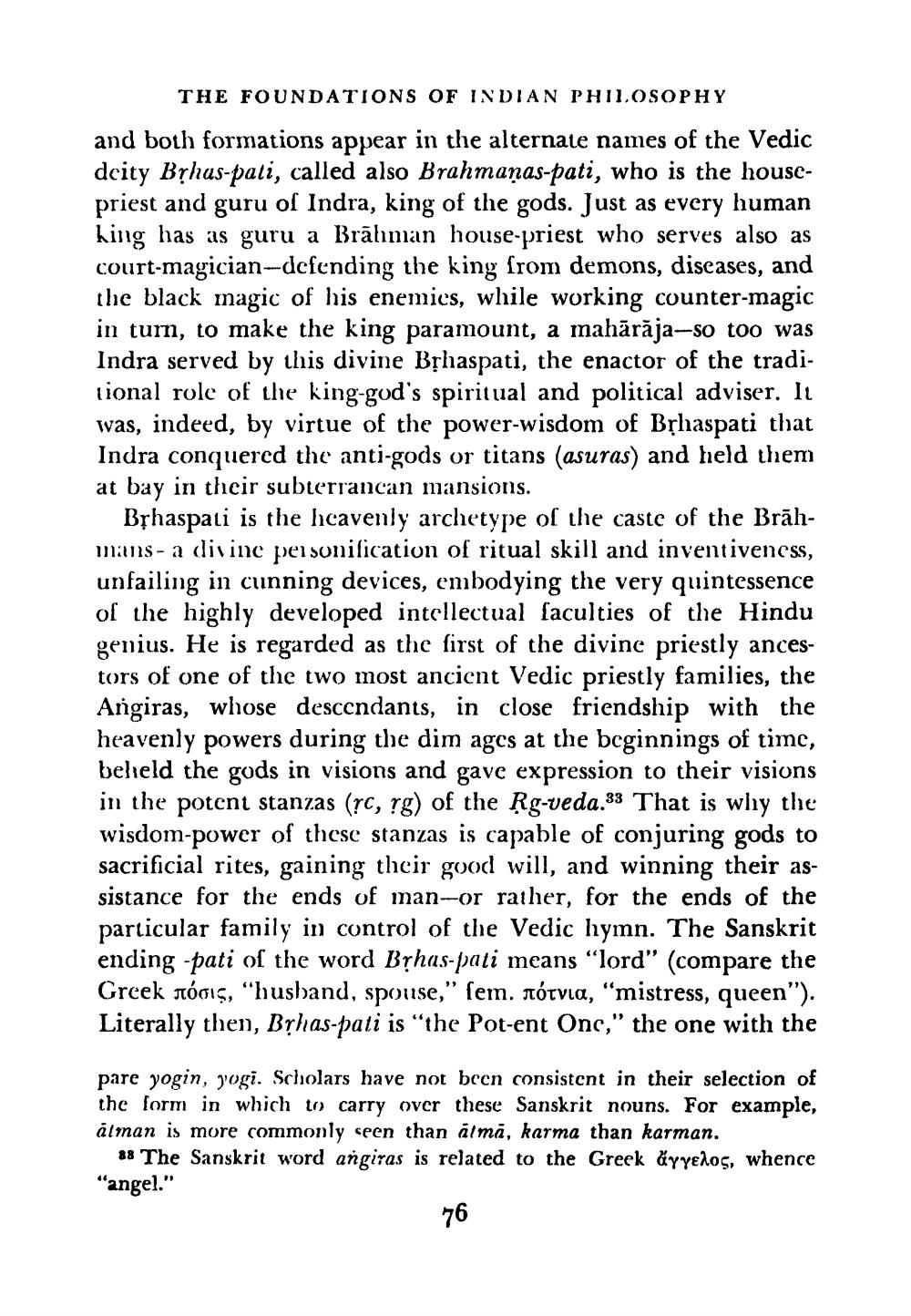________________
THE FOUNDATIONS OF INDIAN PHILOSOPHY
and both formations appear in the alternate names of the Vedic dcity Brhus-pali, called also Brahmaņas-pati, who is the housepriest and guru of Indra, king of the gods. Just as every human hing has as guru a Brālıman house-priest who serves also as court-magician--defending the king from demons, diseases, and the black magic of his enemies, while working counter-magic in turn, to make the king paramount, a mahārāja-so too was Indra served by this divine BỊhaspati, the enactor of the tradiLional role of the king-god's spiritual and political adviser. It was, indeed, by virtue of the power-wisdom of Bphaspati that Indra conquered the anti-gods or titans (asuras) and held them at bay in their subterrancan mansions.
Bșhaspati is the hcavenly archetype of the caste of the Brāhmans- a divine personification of ritual skill and inventiveness, unfailing in cunning devices, embodying the very quintessence of the highly developed intellectual faculties of the Hindu genius. He is regarded as the first of the divine priestly ancestors of one of the two most ancient Vedic priestly families, the Angiras, whose descendants, in close friendship with the heavenly powers during the dim ages at the beginnings of time, beheld the gods in visions and gave expression to their visions in the potent stanzas (rc, ?g) of the Rg-veda.33 That is wliy the wisdom-power of these stanzas is capable of conjuring gods to sacrificial rites, gaining their good will, and winning their assistance for the ends of man-or rather, for the ends of the particular family in control of the Vedic hymn. The Sanskrit ending -pati of the word BỊhas-pati means “lord” (compare the Greek nógiş, “husband, spouse,” sem. Tótvia, “mistress, queen"). Literally then, Brhas-pati is the Pot-ent Onc," the one with the
pare yogin, pogi. Scholars have not been consistent in their selection of the form in which to carry over these Sanskrit nouns. For example, ålman is more commonly seen than almā, karma than karman.
88 The Sanskrit word angiras is related to the Greek áyyelos, whence "angel."
76




